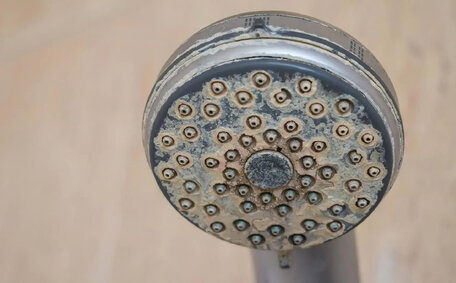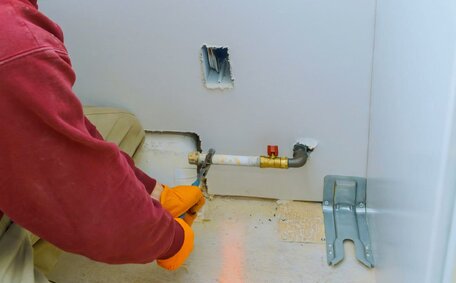What causes pipes to burst? Understanding why pipes fail
Water pipes in your home are vital for daily activities such as drinking and cleaning, yet they can wear down or corrode over time, potentially leading to expensive burst pipe incidents.
Common causes of burst pipes include:
- Old age and wear - pipes degrade over decades of use, leading to cracks and weak seals prone to giving way under pressure.
- Rust and corrosion - chemical reactions weaken metal pipe walls from the inside over time.
- Pressure spikes - sudden surges well beyond normal water pressure can rupture pipes.
- Freezes - water expanding as it freezes can rupture pipes and joints.
- Tree roots - roots penetrating and wrapping around pipes can crack them during growth.
- Ground shifts - seismic activity and soil erosion can occur, twisting pipes past endurance.
Preventative measures such as pipe insulation, pressure regulation, and replacing old pipes can significantly reduce the likelihood of burst pipes, saving considerable trouble and expense in the future.
Where do pipe bursts commonly occur?
Busted water pipe incidents frequently happen in homes’ most vulnerable spots:
- Under sinks and appliances - leakage corrodes vulnerable metal pipes and joints.
- Along exterior walls or ceilings - more prone to freezing in winter.
- In basements and crawlspaces - leaks go unnoticed for longer here.
Repair complexity, and consequently cost, is heavily influenced by the pipe’s location. Pipes under a sink are cheaper to replace than those in hard-to-reach areas, which may need demolition and reconstruction post-repair.
Upper floor pipe bursts can lead to extensive damage as water floods downwards. Therefore, it’s crucial to regularly inspect and maintain pipes in attics and on higher levels.
What are the signs of a burst pipe?
Recognising these signs can help homeowners grasp the implications of broken pipes:
- A sudden spike in your water bill indicates a major leak.
- Lower water pressure from taps or appliances points to a compromised water supply.
- Puddles of water or damp spots on walls and floors signify escaping water.
- Gurgling sounds from pipes can precede bursts.
- Visible water pooling around pipes shows existing leakage.
- Separations in pipe joints signal potential rupture points.
- Foul sewage odours suggest a blockage in your drains or eventual burst in sewer drain pipes.
Early detection of broken water pipes can minimise damage and containment expenses; homeowners should be vigilant for warning signs of potential issues.
Promptly fixing a leak under a sink, for example, may only incur plumbing labour costs. Nonetheless, overlooking early clues thus permitting water to drench subfloors and walls could inflate the fix burst pipe damages into the thousands.
Factors that influence the cost to repair a burst pipe
Repair costs for a burst pipe extend beyond basic plumber fees and materials, with total costs varying based on factors including:
- Accessibility - Whether pipes run behind walls/under floors or out in the open greatly impacts costs. Inaccessible pipes require demolition and reconstruction.
- Excavation needs - Outdoor bursts needing digging equipment and trenching to access pipes heighten expenses.
- Pipe type and size - More expensive materials like copper versus PVC, and wider diameter pipes mean higher parts/replacement costs.
- Severity and scale - Large ruptures causing major flooding versus small leaks significantly increase repair costs.
- Location and containment - Bursts in a home’s top levels or left undetected invite exponentially greater damage costs.
- Auxiliary repairs - Walls, floors, and infrastructure damaged by flooding add more costs after pipe repairs.
Given the many unpredictable elements, plumbers can only provide approximate cost estimates for burst pipes before conducting an in-depth on-site assessment. Repair expenses can range from several hundred to thousands of dollars, depending on the extent and nature of the pipe failure.
Average costs to repair burst pipes in different locations
The cost to repair a burst pipe varies widely by location and other variables, with homeowners typically paying:
- $150 to $350 for an easily accessible pipe under a sink or appliance.
- $450 to $900 for a pipe located under the floor or behind walls requiring some demolition.
- $1,500 to $4,500+ for an underground water service line needing excavation.
In Australia, it’s estimated that simple PVC or copper pipe repairs average at $550, while more complex ones requiring excavation can cost significantly more, including factors such as labour, equipment hire, materials, and restoration work after pipe repairs are completed.
The numerous variables, including pipe accessibility, materials, extent of flooding, and costs of additional repairs, means final expenses can be difficult to predict. Initial plumber quotes are typically ballpark figures, with the precise location and necessary demolition work being primary cost drivers.
When to call a professional plumber
Though DIY repairs such as fixing simple leaks or replacing exposed pipes might be tempting, certain scenarios require the expertise of a professional plumber:
- Gas leaks - Attempting DIY repairs when there’s a gas leak risks deadly explosions. Certified gas fitters must address all such issues.
- Sewer line bursts - Ruptured sewer pipes can flood homes with hazardous waste requiring expert handling.
- Major pipe ruptures - Significant water damage from large bursts in walls/ceilings requires emergency plumber response.
- Water main valve issues - Inability to turn off water during a burst necessitates professional intervention.
- Electrical hazards - Where pipe leaks contact fuseboxes or wiring, technicians must prevent electrocution risks.
- Asbestos materials - Specialist handling adheres to regulations when replacing asbestos cement pipes.
- Underground leaks - Detecting the exact location of below ground pipe ruptures often necessitates professional leak detection equipment.
DIY efforts may worsen damage and inflate costs, so it’s prudent to rely on qualified professionals like Drummoyne Plumbing, who have the necessary expertise and tools for safe burst pipe resolution.
How to choose the right plumber
Pipe repair is a significant investment, and careful selection of a plumber is essential. Here are tips to find a highly qualified professional, taking into account their hourly rate:
- Verify licencing and insurance - Check that technicians are fully certified, licenced gas fitters or plumbers insured to work on your property.
- Check experience - Opt for plumbers with 5+ years specifically handling bursts and leaks rather than jack-of-all-trades handymen.
- Read online reviews - Feedback on responsiveness, work quality and transparency indicates reliable plumbers.
- Compare multiple quotes - Trustworthy technicians have nothing to hide from detailed assessments and fair quotes.
- Confirm availability for emergencies - Round-the-clock availability to tackle burst pipe crises quickly minimises damage.
- Check familiarity with the area - Local plumbers accustomed to region-specific issues make better solutions.
Careful vetting of your plumber guarantees quality workmanship and minimises the risk of mishaps. Local professionals such as Drummoyne Plumbing possess the licences and skills necessary to effectively handle burst pipes.
Minimizing costs: Tips for preventing burst pipes
Burst pipes lead to messy, costly consequences, but prevention is the best medicine when avoiding plumbing disasters. Homeowners can dodge potential rupture incidents and accompanying expenses through proactive maintenance measures.
Insulate vulnerable water pipes
Pipes in uninsulated areas like attics or basements risk freezing and bursting in cold weather. Insulating with materials such as foam, rubber or fibreglass sleeves can protect pipes and stabilise temperature and pressure, reducing the chance of joint weakening and damage.
Conduct routine visual inspections
Homeowners should conduct regular inspections for early leak indicators, including rust or dampness near joints. Yearly inspections can identify potential issues promptly, preventing sudden pipe bursts.
Update outdated pipe systems
Replacing worn galvanised steel or old copper with PEX or CPVC piping eliminates leaks due to deterioration and enhances water flow, mitigating pressure issues that can lead to bursts.
Install pressure regulating valves
Installing pressure regulators before the water meter can manage sudden pressure surges that strain pipes, making it a cost-effective way to prevent burst incidents.
Promptly fix minor leaks
Addressing leaks promptly prevents escalation and potential pipe failure. Simple actions like replacing old washers or sealing leaks can avert more serious issues later on.
Systematic upkeep and preparing your home’s plumbing for common risks can greatly reduce occurrences of burst pipes, extensive repairs, and water damage. Proactive maintenance is an astute approach for homeowners to stave off plumbing problems.






